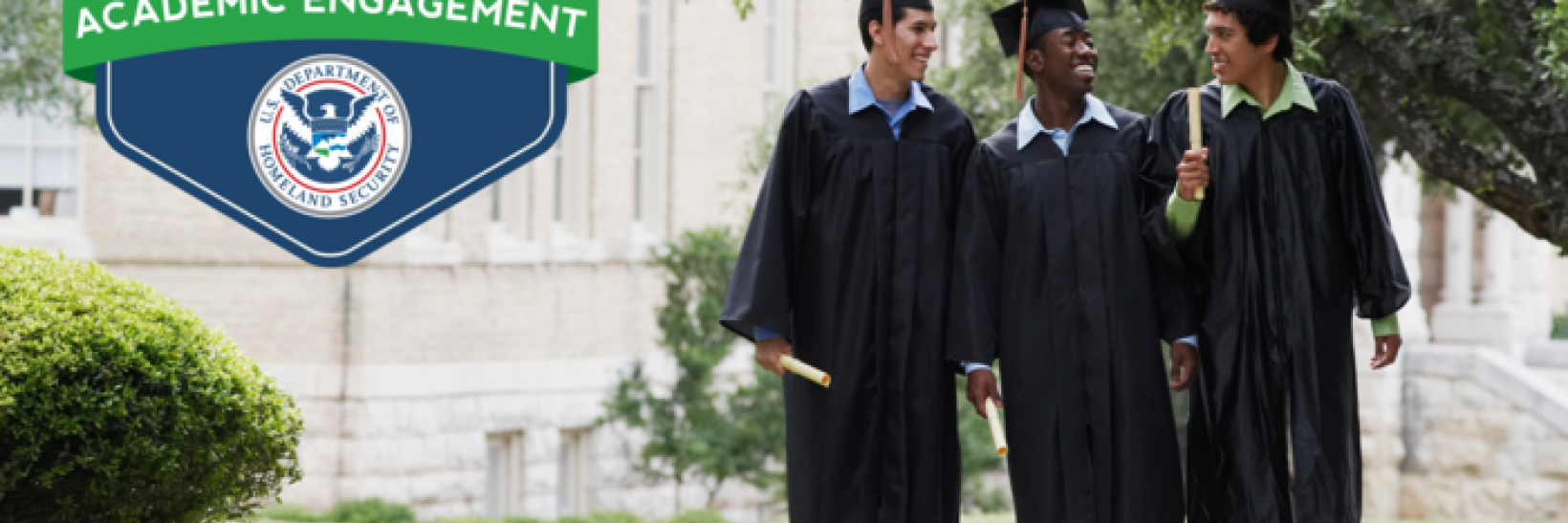The U.S. Department of Homeland Security’s (DHS) Office of Academic Engagement (OAE) supports the DHS mission by building, improving and leveraging relationships with the academic community.
Through this ongoing series, read how OAE actively engages with the academic community in the United States and leads initiatives related to international students, among other key focus areas.
Currently, there are approximately 1.13 million international students studying in the United States. The international student process, defined by the time a prospective student decides to study in the United States until completion of their studies, is a key area of focus for the U.S. Department of Homeland Security (DHS).
In collaboration with government partners, including the Department of State, numerous component agencies within DHS play a role managing key milestones throughout the international student nonimmigrant process. When students arrive at a U.S. port of entry, U.S. Customs and Border Protection facilitates admission of eligible international students. U.S. Immigration and Customs Enforcement (ICE) certifies U.S. schools to enroll international students, develops international student policy, monitors compliance with student nonimmigrant status and manages the Student and Exchange Visitor Information System (SEVIS), the Web-based system used to maintain information on international students and the schools that enroll them. U.S. Citizenship and Immigration Services also plays a key role in the international student process, granting
benefits such as employment.
Given its role with international students, DHS is committed to reviewing and improving its student related processes. One way it does this is through the
Homeland Security Academic Advisory Council. A federal advisory committee made up of college and university presidents, academic leaders and interagency partners, the Council provides advice and recommendations to the Secretary of Homeland Security on issues related to homeland security and the academic community.
The Council’s subcommittee on international students meets throughout the year to discuss international student topics, trends and to develop recommendations for DHS. Currently chaired by Executive Director and CEO of
NAFSA, Marlene Johnson, the group specifically explores:
- How DHS can improve its international student processes and outreach efforts.
- How DHS can better communicate its regulatory interpretations, policies and procedures to the academic community.
- How DHS can accommodate and support emerging trends in international education.
Since its establishment in 2012, the Council has delivered 30 international student-related recommendations to DHS, resulting in key accomplishments and improvements for international students. Most recently, recommendations by the Council led to a
final rule, increasing the number of designated school officials and allowing dependents of F and M students to study part time.
In addition, the Council’s recommendations have supported increased transparency on the development of international student policies. Based on a Council recommendation, ICE’s Student and Exchange Visitor Program (SEVP) began publishing draft policy guidance for public comment. Recommendations have also supported key updates to SEVIS, reduced processing times for SEVP certification and increased outreach to the academic community.
To learn more and sign up to receive monthly updates from OAE, visit the
OAE website.


